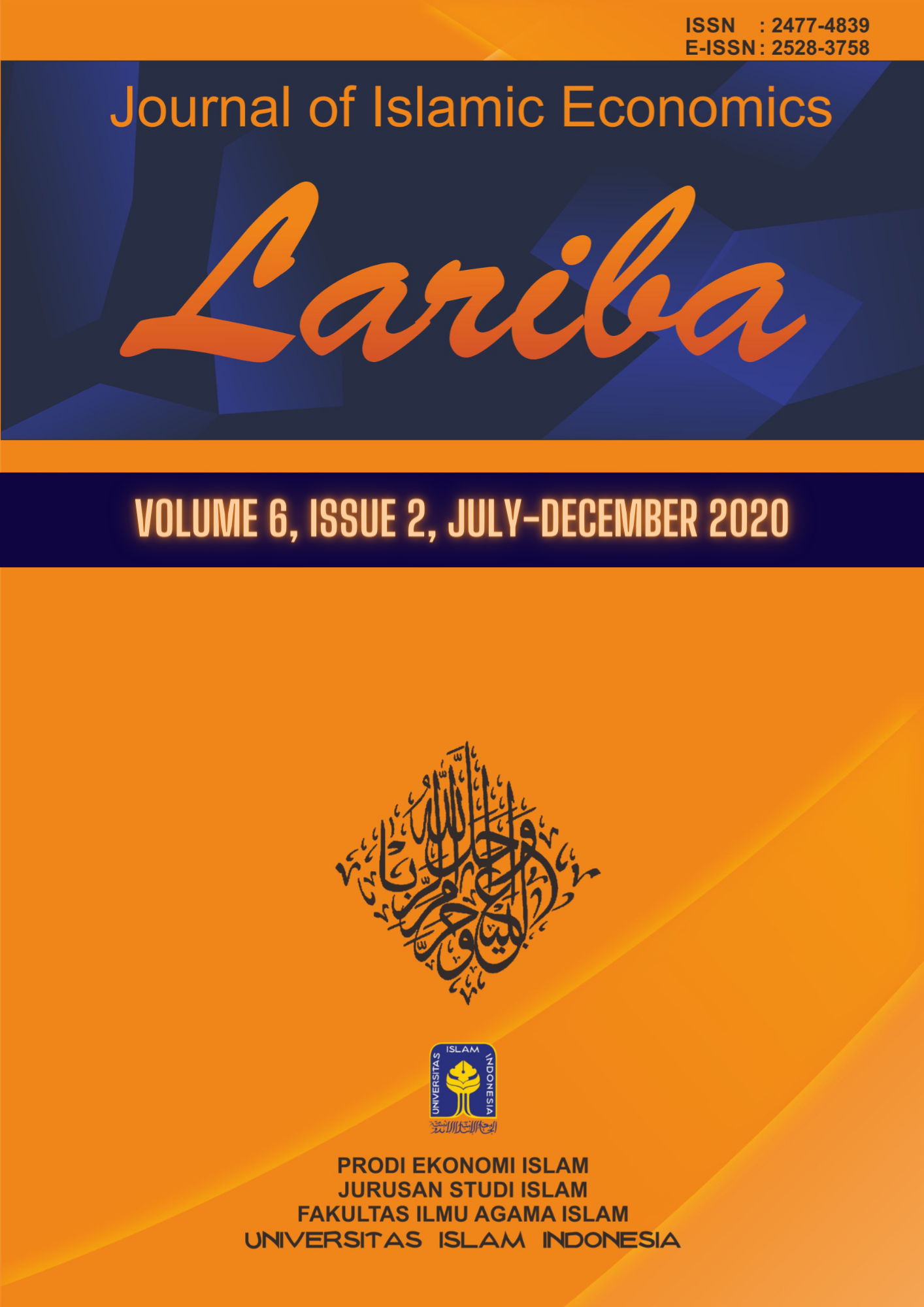Main Article Content
Abstract
ABSTRACT:
The aim of this paper is to explore the extent to which macroeconomic variables affect the Islamic stock market behavior in Indonesia between Oct 2014 until the end of 2019. The paper uses the latest estimation technique of Autoregressive Distributed Lag (ARDL) model approach to cointegration. The data used is secondary data by collecting data from the official websites of Bank Indonesia, BPS, IDX, and Indopremier. The results suggest that GDP, interbank interest rates, IHSG seem to be suitable targets for the government to focus on in short-term. As for long-term, the GDP and IHSG significantly influence the Islamic stock market return, and that's the targets for the government to focus in order to stabilize the Islamic stock market and to encourage more capital flows into the market.
Keywords: Islam, Stock Market, Macroeconomics, Indonesia
Article Details
Authors who publish with this journal agree to the following terms:
- Authors retain copyright and grant the journal right of first publication with the work simultaneously licensed under a Creative Commons Attribution License that allows others to share the work with an acknowledgement of the work's authorship and initial publication in this journal.
- Authors are able to enter into separate, additional contractual arrangements for the non-exclusive distribution of the journal's published version of the work (e.g., post it to an institutional repository or publish it in a book), with an acknowledgement of its initial publication in this journal.
- Authors are permitted and encouraged to post their work online (e.g., in institutional repositories or on their website) prior to and during the submission process, as it can lead to productive exchanges, as well as earlier and greater citation of published work (See The Effect of Open Access).
